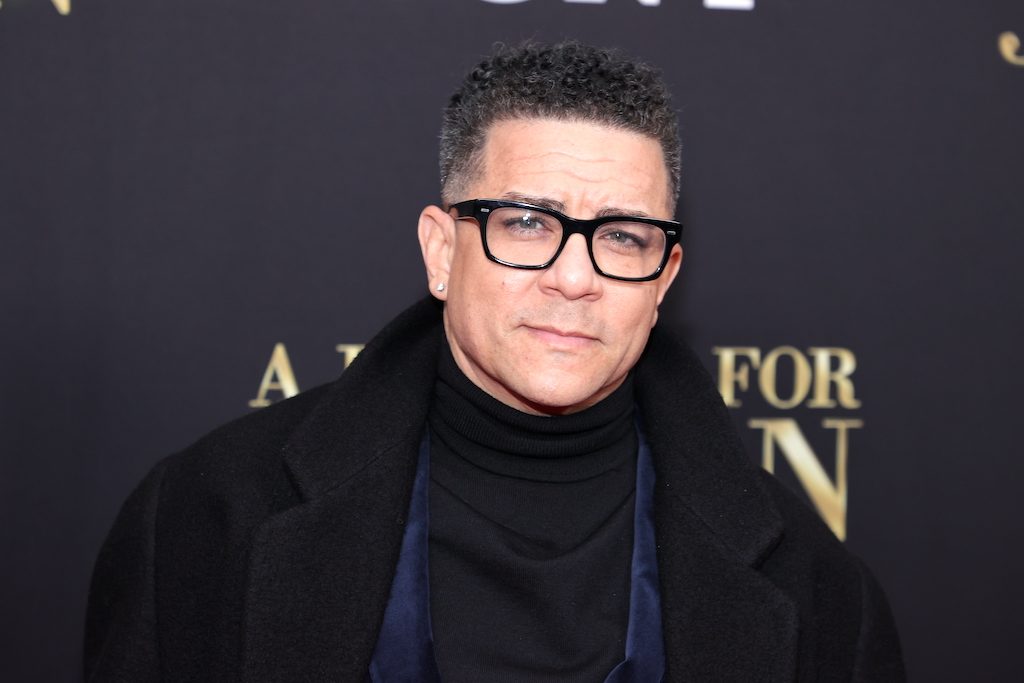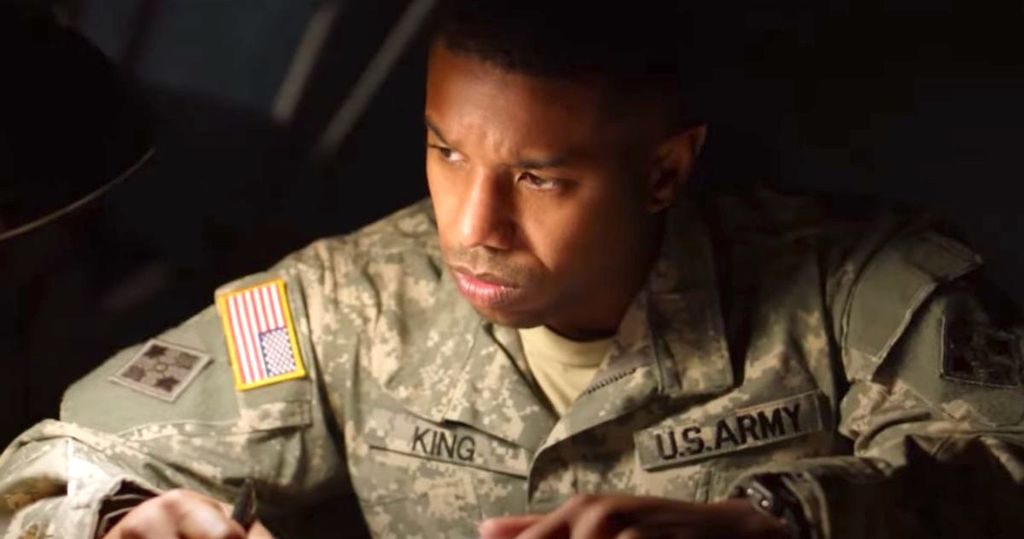A Journal For Jordan began its literary life as a journal from First Sergeant Charles Monroe King (Michael B. Jordan) while serving in war-torn Iraq. It was a love letter to his wife and homespun, fatherly advice to his then infant son, Jordan (Jalon Christian).
Later his New York Time editor wife Dana Canedy (Chanté Adams) and Jordan’s mother, wrote an article From Father to Son, Last Words to Live By. This was later expanded into a memoir A Journal for Jordan: A Story of Love and Honor which became the basis for the film penned by screenwriter Virgil Williams (Mudbound, Criminal Minds) and directed by Denzel Washington (Fences).

Virgil Williams. Photo by Theo Wargo/ Getty Images for Sony Pictures)
Producer Todd Black initially brought the memoir to Williams for consideration in 2017. Virgil admits to not being immediately enamored by the memoir upon first reading. “It was depressing. I couldn’t bear all the sorrow and the loss.”
Then his wife read it and she felt quite differently. “She put a pair of female glasses on my eyes and I read it again. The themes of love, loyalty and the opportunity to portray a black father in a Hollywood movie in a way they are almost portrayed,” changed his mind. Then he met the real Dana Canedy and Virgil Williams was on board.
What’s So Special About A Journal?
There is something deeply intimate and unfiltered in a journal that may get diffused in a novel. Journals are used to articulate thoughts, feelings, and emotions in free form. They don’t even need to written in complete sentences. This rawness framed the screenplay for Virgil Williams. “There’s a real conversation that happens. When you allow yourself to be free on the page, a well of inhibition is released,” said Williams. “You’re not forced to look at another person in the eye. You’re forced to look at yourself.”
First Sergeant Charles King was killed in Iraq when his son Jordan was only seven months old. The journal was a lasting legacy and connection that Jordan had with his father. “It was always there. Jordan can pick up the journal at will when he needed to be close to Charles and needed life lessons or direction.” The irony was that a relationship developed between them despite Charles’ physical absence.
The memoir included a section after Charles’ death where Dana investigated the circumstances surrounding his death. This was largely driven by Jordan in the film when he was around twelve years old and started asking questions. A Journal For Jordan, the movie, also shifted its emphasis to explore motherhood for Dana, post-Charles. Charles co-parented vicariously via his journal.

First Sergeant Charles King (Michael B. Jordan)
The Purest Love
Charles and Dana were an unlikely couple. He was a career soldier always ready to serve his country and his men. Dana was climbing the career literary ladder at the New York Times. Their values, morals, and goals often clashed on a fundamental level. “I would call their love real and eternal,” opined Williams.
“Their oppositeness strengthened their relationship,” he continued. It took a long time to build, nurture, and cement their enduring love. “The energy generated between them is still manifesting. True love never ends. They both had the internal courage and fortitude to give and receive it.”
The Charles and Dana romance wasn’t all tragedy. The memoir also provided many moments of levity and humor which were infused into the film. “That’s what life is,” declared Williams. “Life is never all tragic. Life is full of irony.” Virgil Williams cited the Pixar film Inside Out to elaborate his point. “Joy and sorrow have to work together in the end.”
A good adaptation is like a good DJ. Keep it real and guide the dancing.
The real Dana was always forthcoming to Jordan about the journal in real life. The film treatment of the story made Dana withhold it until he was ready to confront it. “She did it because she couldn’t bear the grief. Breaking out the journal was like peeling off a scab,” said Williams. When Jordan started asking questions about his father, Dana was finally ready to face the pain of loss.

Jordan King (Jalon Christian)
Charles was the perfect father, albeit from the great beyond. “First and foremost, he taught Jordan to always be a gentleman and well-mannered… Old school values… Time is finite. Do what it is you want to do because that time will end some day and you won’t know when that day will arrive. Charles taught Jordan lessons about honor. Hold your head high. Know who you are and where you come from.”
A Journal For Jordan straddles masculine and feminine themes which thread the story together. Charles depicts themes of manhood and fatherhood and Jordan, themes of boyhood and becoming a man. Dana explores issues of nurturing, acceptance, and patience in their purest forms. Both embody the central theme of love. “Charles demonstrated the respect men must have for women. Dana’s acceptance of the situation was her superpower to be celebrated.”
Both Michael B. Jordan and Chanté Adams brought nuances to their characters that weren’t explicitly on the page. “I can only create the space for the electricity generated between them on screen,” confessed Williams.
Virgil Williams always writes from a place of honesty. “I’m a relentless pursuer of the truth.” He likes to write about characters “striving for the impossible and achieving things that are not expected of them.”
In closing, Williams quotes Denzel Washington for his screenwriting nugget of wisdom, “The universal stems from the specific.” Williams extends this mantra to all aspects of his life.
